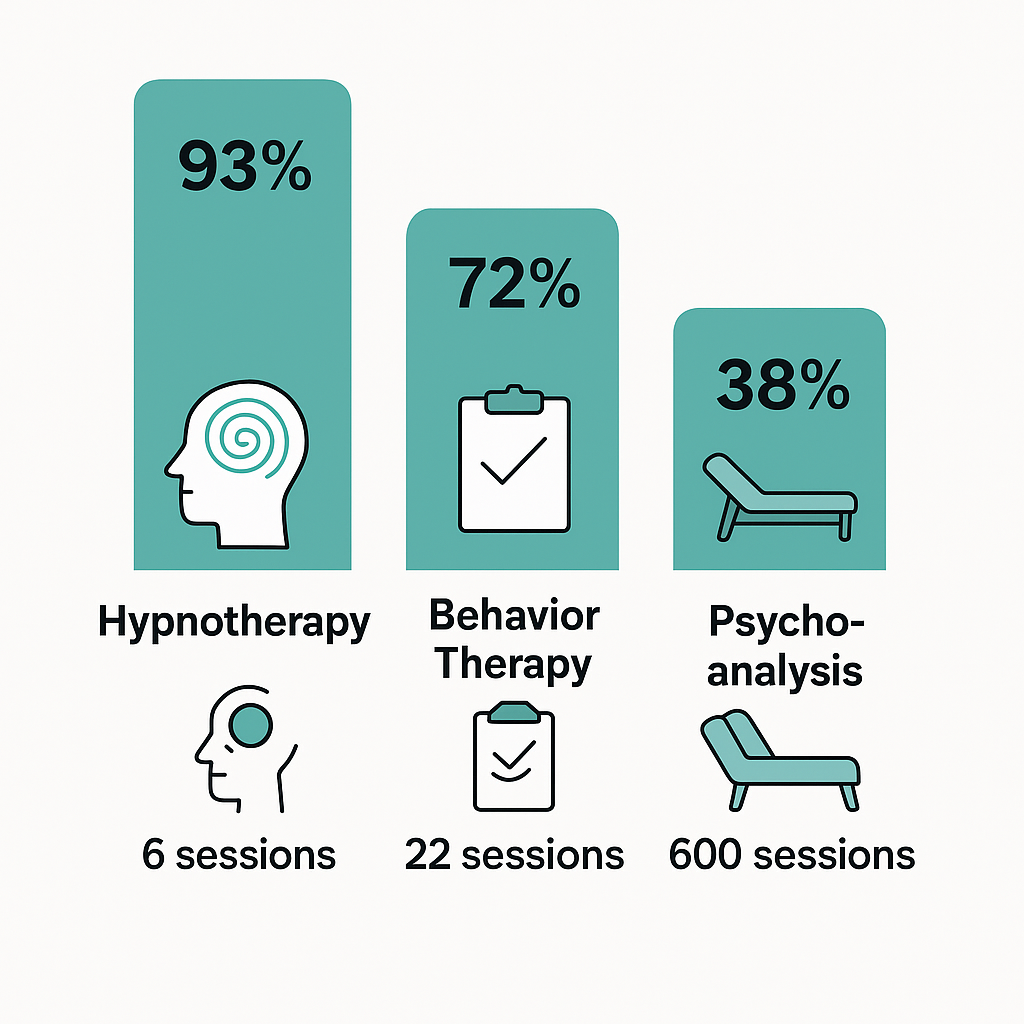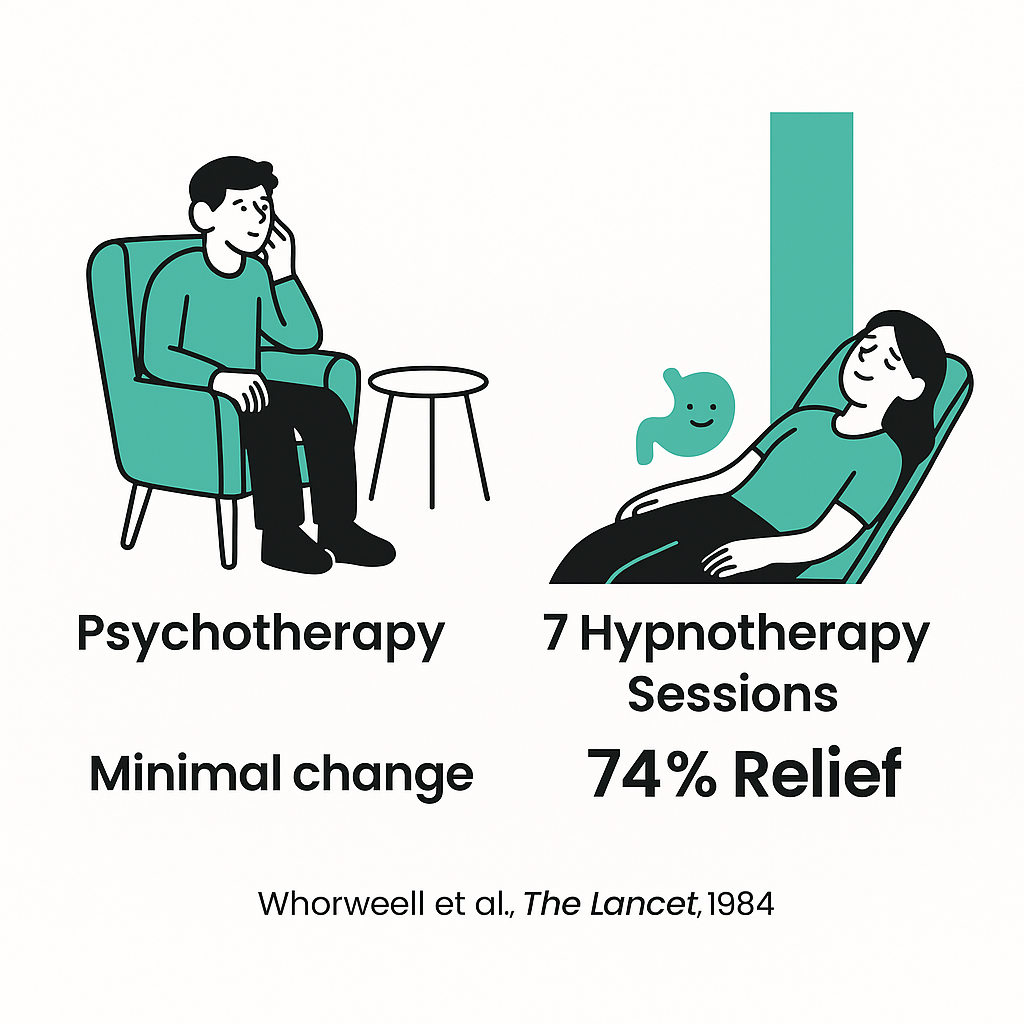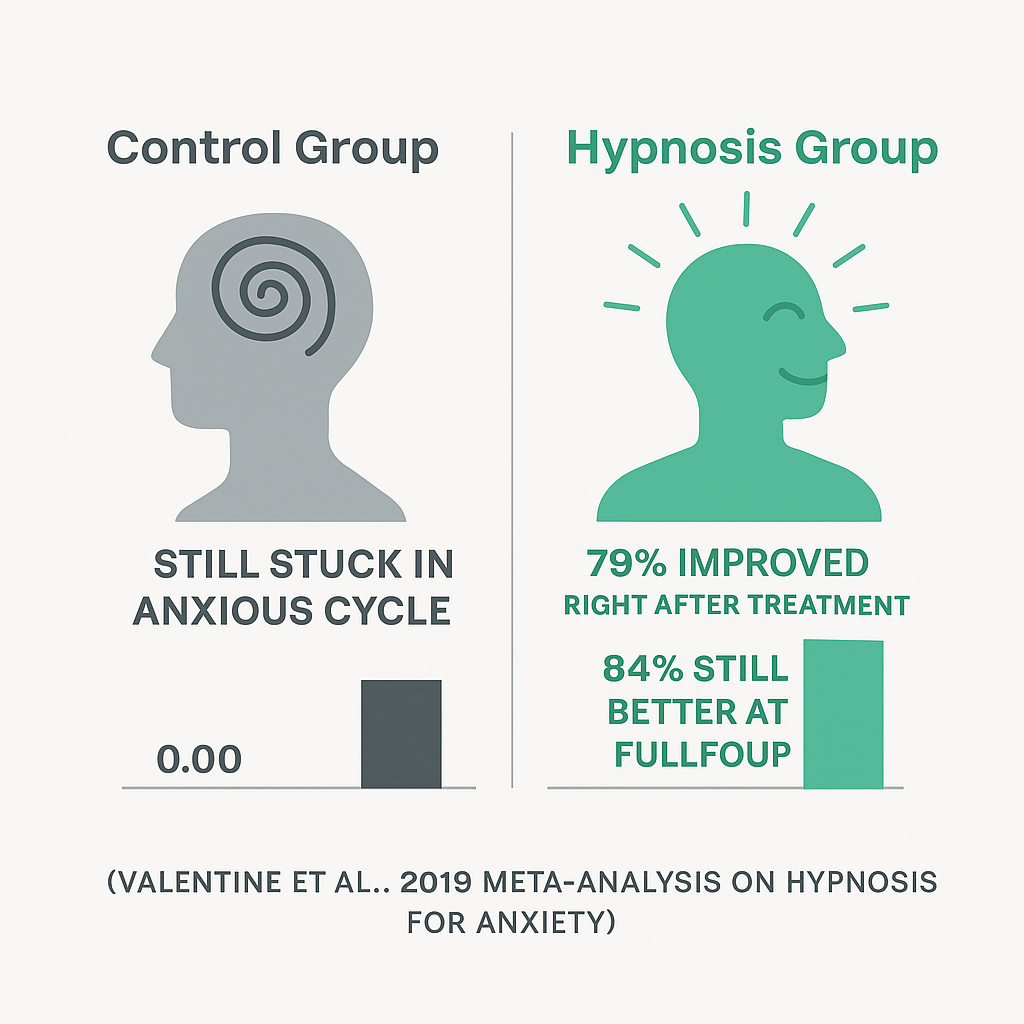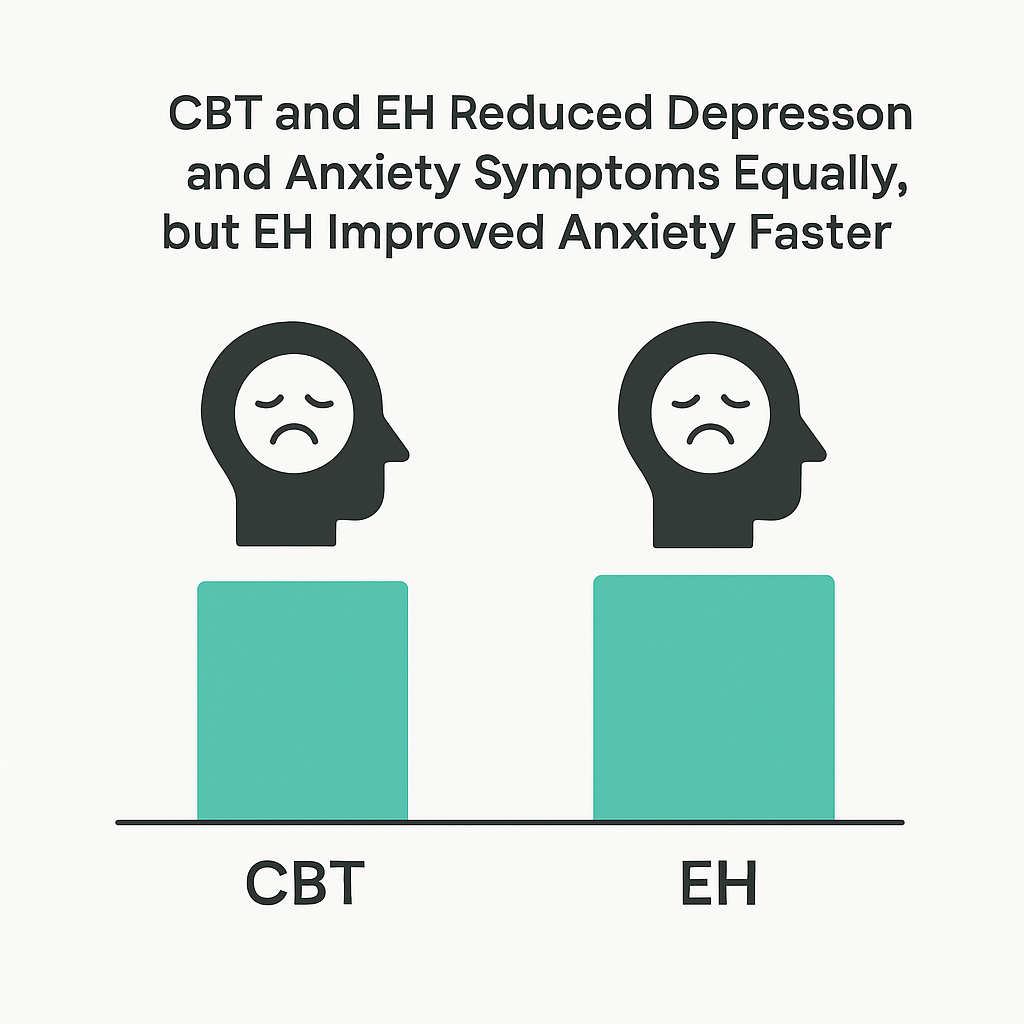Published Clinical Studies for Hypnosis as a relief

Summary of Barrios Meta-Analysis (1970)
Finding:
Hypnotherapy achieved a 93% success rate in just 6 sessions, compared to 72% success in 22 sessions for behavior therapy and 38% success in 600 sessions for psychoanalysis.
Conclusion:
Hypnosis appears significantly more efficient at achieving therapeutic results in fewer sessions. The author suggests this is because hypnotherapy directly targets subconscious beliefs and emotional patterns, accelerating change
Summary of Whorwell et al. (1984) Study on IBS
Finding:
In a randomized controlled trial of 30 IBS patients, 74% of those who received gut-directed hypnotherapy experienced significant symptom relief in just 7 sessions. The psychotherapy group showed only modest improvements, with no meaningful changes in bowel habits.Conclusion:
Gut-directed hypnosis was significantly more effective than supportive psychotherapy for treating severe IBS. The results suggest hypnosis not only reduces symptoms faster but also leads to lasting relief—without relapses during a 3-month follow-up. This study helped establish hypnosis as a respected treatment in GI clinics.
Summary of Valentine et al. (2019) Meta-Analysis on Hypnosis for Anxiety
Finding:
In a review of 17 trials across 15 studies, hypnosis showed a mean effect size of 0.79 at the end of treatment—meaning participants receiving hypnosis had better anxiety relief than 79% of those in control groups.
At long-term follow-up, the effect size increased to 0.99, showing 84% of participants maintained greater improvements than controls.
Hypnosis was even more effective when used alongside other therapies.Conclusion:
Hypnosis is a powerful, research-backed method to reduce anxiety. It not only works in the short term, but also holds its effects over time—especially when combined with other psychological treatments.
Summary of CBT vs. Ericksonian Hypnosis RCT (2022)
Finding:
In a randomized controlled trial of 45 participants with mild (subclinical) anxiety and depression:
-
Both Cognitive Behavioral Therapy (CBT) and Ericksonian Hypnosis (EH) significantly reduced symptoms compared to a waitlist control.
-
No major difference in overall effectiveness between CBT and EH.
-
Hypnosis worked faster for anxiety—especially at the halfway mark.
Conclusion:
CBT and hypnosis are both valid tools for managing early signs of depression and anxiety. But hypnosis may bring faster anxiety relief, especially for those with somatic or body-focused symptoms. This study highlights hypnosis as a powerful early-intervention option—not just for diagnosed disorders, but for people feeling "off" or stuck before things escalate.

67% REDUCTION IN NIGHTTIME WAKEFULNESS
In addition to increasing beneficial slow-wave sleep, hypnotic suggestion significantly reduced time spent awake during sleep periods by 67% compared to control conditions213. This finding is particularly relevant as sleep fragmentation and nighttime awakenings are common complaints among those with sleep disorders.

The 2014 study authors noted that "in contrast to many sleep-inducing drugs, hypnosis has no adverse side effects


